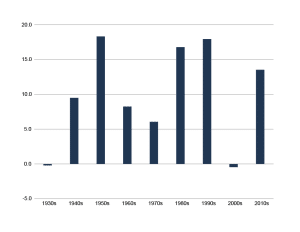OAKLAND | HOUSTON | PHILADELPHIA
2025 Tax Planning: Considerations and Opportunities
As we move into 2025, the key tax question is the future of the 2017 Tax Cuts and Jobs Act (TCJA), which introduced significant changes to the tax code with provisions set to expire at the end of next year. Following the 2024 election, which resulted in Republican control of the White House, the Senate, and the House, it’s more likely that tax policies will be similar or largely stay the same, and it is fair to expect that many of the TCJA provisions will be extended. Although there are still many questions about future tax policy developments, the election results provide a better ability to plan.
Here are the key tax planning considerations and opportunities to keep in mind as we transition into 2025.
1. Consider how tax policy could evolve under a second Trump term.
To pass most bills, Republicans will need some bipartisan support as Democrats will retain enough Senate votes to filibuster most legislation. However, Republicans can still pass fiscal policy bills using reconciliation, which makes it possible to fast-track legislation with a simple majority vote. This could include changes to the tax code, such as extending current tax brackets, the qualified business income (QBI) deduction, and the estate tax exemption. Even so, there is still uncertainty on where Republicans stand on some key provisions in the TCJA, particularly the state and local tax (SALT) deduction cap of $10,000. While many congressional Republicans support extending or raising the cap, some have reversed their stance and have suggested they would eliminate it, Trump included. It’s also unclear whether any new provisions will be made permanent or sunset as with the TCJA.
What might this mean for planning? First, if you have already paid $10,000 or more in state and local taxes or you do not plan to itemize deductions in your 2024 tax return, you may want to consider deferring any additional SALT payments to 2025 in case the cap is eliminated for that year. Additionally, if you have considered purchasing an electric vehicle, act soon. A Republican-controlled government might eliminate the $7,500 federal tax credit for electric vehicle purchases, potentially as early as 2026.
2. Prepare for the sunset of the TCJA provisions.
Passed under the Trump administration, the TCJA introduced substantial changes to the tax code. Here’s a summary of the key tax provisions impacted and what could happen if Congress does not take action to extend them.
Individual tax rates: The TCJA lowered tax rates, with the top rate reduced from 39.6% to 37%. These rates are set to revert in 2026.
Standard deduction: TCJA nearly doubled this amount. This reversion would be adjusted for inflation.
Itemized deductions:
- SALT deduction: The TCJA capped the SALT deduction at $10,000. If this reverted, deduction limits would increase on state, local, and property taxes.
- Mortgage interest deduction: The TCJA suspended the home equity loan interest deduction and limited the mortgage interest deduction to the first $750,000 of debt for loans originating after December 16, 2017. In 2026, this limit will return to $1 million for home mortgage debt and $100,000 for home equity loans.
- Miscellaneous deductions: The large number of miscellaneous deductions that were eliminated will return in 2026 if they exceed 2% of adjusted gross income.
Child tax credit: This is set to revert to $1,000.
Personal exemptions: These were suspended but would return in 2026 to $2,000 per taxpayer and dependent, adjusted for inflation, with phaseouts at higher income levels.
Alternative minimum tax (AMT): AMT exemption amounts and phaseout thresholds were increased and would revert to pre-TCJA levels.
3. Plan with 2025 inflation adjustments in mind.
Although tax policy changes are less certain, we now know what the IRS inflation adjustments will be for tax year 2025. As inflation continued easing with a rate of 2.4% for the 12-month period ending in September 2024, some of the 2025 inflation adjustments are lower than they have been in recent years.
To view the adjustments, download our 2025 Tax Guide .
The standard deduction will increase to $15,000 for single filers and those married filing separately, and to $30,000 for those married filing jointly. As the TCJA eliminated the need for most taxpayers to itemize their deductions, many individuals choose to take the standard deduction. If this is the case for you, then you may not need to focus on maximizing below-the-line deductions, such as charitable contributions, payments of state and local taxes, or medical expenses. Instead, you may want to prioritize managing above-the-line deductions, which you can take regardless of whether you itemize or use the standard deduction. These include deductions for contributions to a traditional IRA or health savings account (HSA), student loan interest payments, and self-employed retirement contributions, among others.
It’s also important to review whether the new tax brackets will give you enough room to remain in the bracket you were in for 2024 or whether you might need to make adjustments. By reviewing this early in 2025, you can determine whether additional tax-reduction strategies could further reduce income so that you remain in the same bracket.
Depending on your situation, you may want to explore the potential impact of other inflation adjustments, such as the foreign earned income exclusion , gift tax exclusion , or qualified adoption expenses.
4. Review the possible tax consequences of your short-term and long-term investments.
Long-term capital gains on investments receive advantageous tax treatment that you may benefit from. In general, it’s best to hold appreciated investment assets for at least a year before selling. Selling earlier means any gains on these assets will be taxed at ordinary income rates, which are higher than capital gains rates.
If you expect to have income from investments or selling assets, consider whether you may be subject to an additional net investment income tax of 3.8%. This tax applies to single filers with modified adjusted income (MAGI) exceeding $200,000, and joint filers with MAGI exceeding $250,000.
Also, don’t forget to account for asset location in your tax planning. If you have investment accounts with different types of tax treatment, including taxable, tax-deferred, and tax-free, strategically placing certain investments in certain accounts can help reduce the long-term impact of taxes on your portfolio.
5. Maximize your tax-advantaged accounts.
If you can contribute more to your tax-advantaged accounts this year, such as retirement accounts and HSA plans, you might want to consider doing so for tax planning purposes. Contributions to many of these accounts are eligible for an above-the-line deduction whether you itemize or not. These accounts can not only help you save on taxes today (or, in the case of a Roth , provide tax-free income in the future), they also provide ongoing tax benefits in the form of tax deferral. Planning ahead allows you to spread out contributions throughout the year, so you won’t have to make large, last-minute payments to reduce taxes.
It is also advantageous to take a long-term view of tax deferral. It can be tempting to defer as much as possible to lower taxes today. But doing so could have adverse effects on tax payments in the future. The tax consequences for when the money is distributed should be considered. The decision to pay more taxes today could even come in the form of making non-deductible Roth IRA contributions (for those who qualify), or by converting tax-deferred accounts into a Roth IRA to allow for tax-free growth.
Conclusion
To ensure you are taking full advantage of all the tax opportunities available to you, speak with your wealth advisor to discuss which strategies would be most relevant to your circumstances as you begin tax planning for 2025. Despite uncertainty about how tax policy could evolve next year, proper planning can help put you on the right track to minimizing the impact of taxes while ensuring you are meeting key deadlines. Happy planning!
For informational and educational purposes only and should not be construed as specific investment, accounting, legal or tax advice. Certain information is based upon third-party data, which may become outdated or otherwise superseded without notice. Third-party information is deemed to be reliable, but its accuracy and completeness cannot be guaranteed. Indices are not available for direct investment. Their performance does not reflect the expenses associated with the management of an actual portfolio nor do indices represent results of actual trading. Information from sources deemed reliable, but its accuracy cannot be guaranteed. Performance is historical and does not guarantee future results. Neither the Securities and Exchange Commission (SEC) nor any other federal or state agency have approved, determined the accuracy, or confirmed the adequacy of this article. Please be advised that Buckingham only shares video and content through our website, Facebook, LinkedIn page, and other official sources. We do not post investment advice on WhatsApp, Telegram, other interactive applications, or other similar platforms. Rather, Buckingham provides investment advice only through individualized interactions. R-24-7940











Oakland | Houston | Philadelphia
1970 Broadway Suite 525 Oakland, CA
150 Monument Rd, Suite 207 Bala Cynwyd, PA
For general inquiries and media inquiries, please contact us through the form below or email us.
Send Us A Message
Thank you for contacting us.
We received your message and will get back to you as soon as possible.
There was an error sending your message.
Please try again or email us.
© 2024 PF Wealth Management Group. All Rights Reserved. | Disclaimer
